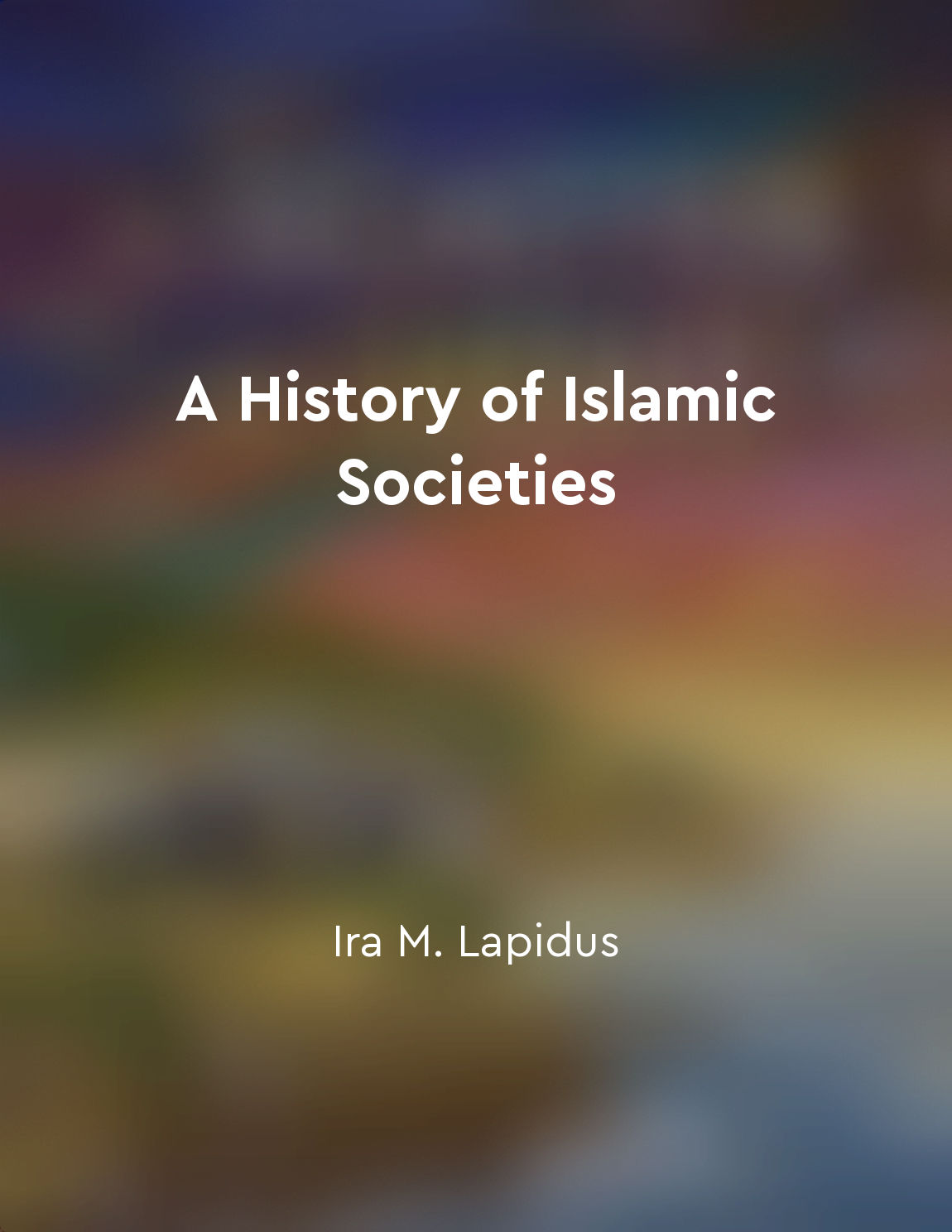The Quran provided a unifying foundation for Islamic societies from "summary" of A History of Islamic Societies by Ira M. Lapidus
The Quran, as the holy scripture of Islam, played a crucial role in providing a common foundation for Islamic societies. This unifying function of the Quran is evident in its role as a source of religious guidance and moral principles for Muslims across diverse social and cultural contexts. The Quran served as a unifying force by establishing a shared set of beliefs, values, and practices that bound together the diverse populations of Islamic societies. Moreover, the Quran provided a framework for social organization and governance based on the principles of justice, compassion, and equality. These principles were articulated in the Quranic injunctions regarding the treatment of the poor, the vulnerable, and the marginalized in society. By promoting social justice and ethical behavior, the Quran helped to create a sense of solidarity and cohesion among members of Islamic societies. In addition, the Quran served as a linguistic and literary unifier for Islamic societies by establishing Arabic as the language of religious worship and scholarship. The Quranic text, with its poetic beauty and rhetorical power, became a unifying cultural touchstone for Muslims, regardless of their ethnic or regional backgrounds. The recitation and memorization of the Quran in Arabic became a common practice among Muslims, further strengthening their sense of shared identity and belonging. Furthermore, the Quran provided a basis for legal and ethical norms in Islamic societies through the development of Islamic law (Sharia). The Quranic injunctions on matters such as marriage, inheritance, and criminal justice served as a moral and legal code that governed the conduct of individuals and communities. The application of Islamic law helped to promote social order and cohesion by providing a common framework for resolving disputes and maintaining harmonious relations within Islamic societies.- The Quran's role as a unifying foundation for Islamic societies was multifaceted, encompassing religious, moral, cultural, and legal dimensions. By providing a shared set of beliefs, values, and practices, the Quran helped to forge a sense of unity and common purpose among the diverse populations of Islamic societies. The Quran's enduring influence continues to be felt in shaping the social, cultural, and political dynamics of Islamic societies to this day.
Similar Posts
Integration of disciplines enhances hadith scholarship
The integration of disciplines is crucial for the advancement of hadith scholarship. By combining various fields of study such ...
Through interdisciplinary study, hadith scholars can grasp the full depth of prophetic traditions
The study of hadith is a crucial aspect of Islamic scholarship, as it provides valuable insights into the teachings and practic...
Developing a deeper connection with the Quran
Developing a deeper connection with the Quran is a process that requires time, effort, and dedication. It involves not just rea...
Repentance and redemption
Repentance and redemption are central themes in the Qur'an, emphasizing the importance of acknowledging one's mistakes and seek...
The Quran's emphasis on gratitude
The Quran highlights the importance of being grateful in numerous verses, emphasizing the significance of gratitude in the live...
Reflecting on the verses of the Quran
One of the most important aspects of engaging with the Quran is to ponder over its verses. This involves taking the time to ref...
Exploring the timeless wisdom of the Quran
The Quran has been described as a book of timeless wisdom. This wisdom is not limited to any particular time or place, but is r...


